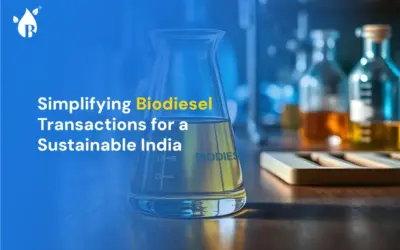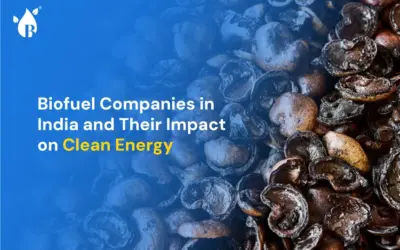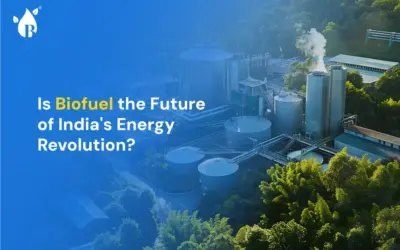
Although, what we are not aware of is that they have approved numerous policies for the advancement of the biofuels sector. Especially over the last half-decade, policymakers in India have thoughtfully roped in the importance of biofuels. They have brought in many benefiting policies to prompt a rise in the production and usage of sustainable fuels.
They promised to launch trading and retailing of all types of biofuels. Policies stated restriction on importing biofuels. It is mandated that all of India’s Used Cooking Oil (UCO) must be supplied for biodiesel manufacturing through the RUCO policy.
Policies committed to providing high subsidies for Bio-CNG manufacturing and incentivizing Bio-CNG production through the SATAT policy. They decided to help the biofuels industry by keeping the fuel prices on the higher side. The strategy for integrating biofuel production and usage in smart cities was also put down on paper.
However, the ground implementation of all these policies has been dismal so far and is yet to see the light of the day.
Monthly Spurious Fuels Trading > India’s Biodiesel Production Capacity
Spurious fuels are no stranger to the import, trade and retail sections of the industry. Fraudulent fuels are effortlessly bought and sold as biodiesel despite having strict policies in place. Amidst this state of disarray, the flow of genuine biodiesel is disturbed and the organizations involved face a heavy blow.
Oil Marketing Companies (OMCs) are publicly selling various kinds of low distillates that are ultimately blended and sold off as biodiesel or as a substitute for diesel with a random name. They sell spurious fuels in bulk at lower and enticing prices. The situation is so grim that the monthly volume of spurious fuel exceeds the annual biodiesel production capacity of India.
In a time when the country is taking steps, although tiny, to move towards greener practices, such careless and preventable hazards can cost the environment heavily in the long run.
Genuine Biodiesel Traders Are Harassed and How
The Food, Civil Supplies and Consumer Affairs department of local states are authorized to issue licenses for regulating the retail trade of biodiesel. But they are oblivious to the biofuels sector and are completely unaware of the kinds of license they must be issuing. This happens so competently that genuine trading retailers of b100 biodiesel are harassed and shut down. All while the groups involved in spurious fuels are given a free hand to continue without any hassle.
99% of UCO Is Forced Back Into the Food Chain
Most of the UCO generated in India falls back into the vicious loop of adulteration or reuse as cooking oil. In numbers, less than 1% of UCO generated within India actually goes for biodiesel manufacturing.
Despite having technology by our side, archaic procedures like maintaining the disposal register of UCO and FSOs, maintaining manual records and manual tracking of UCO from restaurants seem pointless. Worse yet, pushing biodiesel manufacturers to register with FSSAI and have contracts with UCO aggregators don’t belong to the technology era of the 21st century.
These huge loopholes are generously exploited by adulterators and spurious traders to source UCO and push it back into the food chain.
Centralized Waste Management Cuts Short the Potential of Bio-CNG
The local cartels of waste management are an efficient source of raw materials for Bio-CNG production. The on-ground centralization of waste management across various states gives a hard time to domestic Bio-CNG manufacturers in terms of sourcing raw materials. It curtails the potential of Bio-CNG, a very important biofuel to achieve India’s biofuel goals.
Instead, the domestic waste can be collected locally, converted into Bio-CNG on-site and it can be directed back to the fuel consumers of the same community/city.
Solution: Embrace Technology
Indian policymakers should enable the usage of technology across all these sectors, especially in the sourcing of wastes for biofuel manufacturing. Doing so will ensure that the biofuel sector is easily and openly able to source raw materials and in turn, increase the production capacity.
The government must immediately knock off all archaic procedures (maintaining manual registers, encouraging FSSAI approved manufacturers, etc,.) and instead, must focus on using technology. Keeping a digital track of hotels contributing UCO to biodiesel manufacturing (either directly or through aggregators) is a viable option.
Embracing technology can also overview the entire process of manufacturing biodiesel from the point of UCO collection for production to the sale of UCO-based biodiesel.
Going forward, blockchain can be used to validate the tracking and traceability of UCO becoming biodiesel. It can be further extended to trail municipal wastes becoming Bio-CNG and bio-industrial fuels. This will ensure that the control over the system is transferred to the government from local waste management cartels.
Similarly, the trading and retailing of biodiesel and other fuels should be tracked and traced to the source of the manufacturer. Therefore, it completely removes the need for any local Food and Civil Supplies License while making the production and distribution of biofuels easier.
It’s time that Indian policymakers ensure their policies yield the desired support and results for the biofuels sector. It’s time to replace outdated procedures with technological support. It’s time to improve the biofuels sector and grow as a nation.




